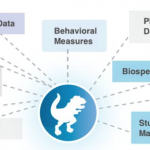RexDB is a platform for creating Configurable Data Repositories (CDRs). Unlike typical data warehouses and data marts, CDRs can be configured by implementation analysts, usually with little-to-no help from software engineers, and with no help from database administrators.
RexDB includes several specialized end-user applications for supporting common data interaction activities and workflows. Several of these applications, such as those used for data entry and data exploration, are considered mission-critical and are “reserved” in the sense that that they can only be configured along specific dimensions to ensure high levels of stability and consistency across all solutions. Other “applets” are fully configurable in the sense that analysts can augment pre-built applets — or create entirely new applets — by configuring data models, ETL pipelines, data capture forms, data marts, user interaction screens, and business intelligence reports and dashboards.
Screens are composed of standard widgets organized inside templates. In cases where an application requires a screen not supported by the existing library of widgets and templates, the configuration library of widgets and templates can be extended by a customization engineer using a standard open-source web framework (ReactJS). Thus, the library grows over time, further reducing the need to use customization engineers for common cases and reducing the cost of delivery on standard projects.
 Availability:
Availability: